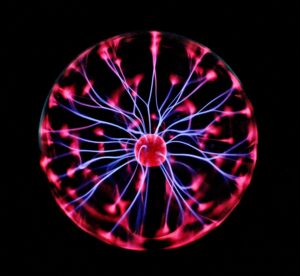Mental Health Awareness
In previous articles we have covered numerous physical health conditions. This time I wanted to shift the focus to mental health.

Understanding mental health can be challenging because it lacks clear biometric indicators. Unlike physical ailments such as headaches, fever, or body aches mental health is defined by thoughts, behavior and feelings.
For instance, if I mention experience stomach issues, headaches, muscle pain, or any other physical health concern, the typical advice would be straightforward, “go see physician”
However, if I become cognizant about my mental health, experiencing confusion about my emotions, persistent low mood, and a loss of interest in activities I once enjoyed the responses might not be as clear-cut. Perhaps I will hear comments like “stop feeling sorry for yourself”, or just get up and do something. Unfortunately, such reactions from family and friends can lead sufferers to blame themselves for their inability to overcome this phase.
Throughout life, we all encounter various experiences, whether its facing unemployment navigating complex relationship, or dealing with the loss of loved one, life unfolds with a mixture of highs and lows.

The situations described can evoke sadness for a time, while some people may eventually overcome these challenges, for others, the distress lingers and doesn’t appear to diminish over time.
Dr, Alex Korb’s book, The Upward Spiral delves into the explanation of depression, a significant mental health issue.
According to Dr. Alex Korb, the author of, “The upward spiral”, people mostly think that being in the state of prolonged sadness is depression but it’s much more than that. It’s a feeling of numbness, worthlessness, and hopelessness. Everything feels difficult and nothing seems worth the effort. It’s hard to sleep and stay asleep. Aches and pains are felt more prominently and it’s hard to concentrate.
According to Dr. Korb, we don’t exactly know what depression is. We just know the symptoms and the causes of it and we know the neurochemical involvement in it.
The brain comprises two main parts the prefrontal cortex and the limbic system. The prefrontal cortex governs rational thinking, while the limbic system is responsible for emotions. During periods of poor mental health, communication between these two systems is often impaired.

These are a handful of neurotransmitters that, if functioning inadequately, can contribute to distress.
-
- Serotonin: Improves willpower, motivation, and mood
-
- Norepinephrine: Enhances thinking, focus, and dealing with stress
-
- Dopamine: Increase enjoyment and is necessary for changing bad habits
-
- Oxytocin: Promotes feelings of trust, love, concentration, and reduced anxiety.
-
- GABA: Increases feeling of relaxation and reduces anxiety
-
- Melatonin: Enhances the quality of sleep
Major Triggers Of Poor Mental Health
-
- Family or personal history of major depression
-
- Recent loss(death of loved one, divorce)
-
- Chronic health problems
-
- Stressful life events
-
- Traumatic events
-
- Major life changes (e.g., having a baby, moving to new city, new job)
The Symptoms of Poor Mental Health
-
- Feeling low, empty and sad most of the day for more than two weeks constantly
-
- Loss of interest in pleasure
-
- Loss of motivation
-
- A significant change in weight or appetite
-
- Feeling worthless, hopeless or like a failure
-
- Sleep problems like insomnia or excessive sleep
-
- Low energy/fatigue
-
- Feeling restless
-
- Loss of energy
-
- Social withdrawal
-
- Tearfulness/crying
-
- Problems with concentration, memory and decision-making
-
- Thoughts of death
The symptoms mentioned can be classified into three main areas. The first area pertains to emotional experience, encompassing persistent feelings of sadness, anger, guilt, hopelessness and worthlessness
The second area concerns behavioral patterns, such as social withdrawal, low energy levels, difficulty concentrating, sleep disturbance, and notable changes in appetite.
Lastly, the third area involves cognitive aspects, including feelings of low self esteem diminished interest in usual activities and suicidal thoughts.
In his book Dr. Korb explains, there are times when everything feels worthless and pointless. We all go through these times. For some people it’s easy to let go but for some it’s where they get stuck for a long time.
This is a natural product of our complex brain circuits and the main difference between these two kinds of brains is their neurobiology. Many studies have shown that small life alterations can change the activity and chemistry in brain circuits

Primarily, reaching out to professional is key. With years of training and diverse experiences they offer tailored support. Recognizing each person’s uniqueness, they guide individuals toward personalized treatments. Its though exploration that we discover what methods suit us best.
Depression is an isolation disease. The person going through would like to be alone. They would like to isolate themselves. The person would feel alone even among other people. The one important aspect the author wants people to take away from his book is that even though you want solitude your cure lies in being around other people.

Gratitude is a key to feeling better. Write a detailed thank-you note to someone who was kind to you and deliver it personally. The study shows that after delivering thank-you notes can make people feel happy even after two weeks.
Listening to music can also be soothing to the brain and is a calming technique as it reduces blood pressure and stress.
Develop positive habits and resolve to change for positive habits. It is more powerful to have resolution than just a desire to change.
Bright lights during the day can boost serotonin and reduce pain. Take a walk outside in the sun for 15 minutes everyday.
Make decisions in favor of your will rather than against it. So instead of saying, “I don’t want to be bad at it”, say “I want to be good at it”.
Be attentive of your triggers. To avoid going to old habits try to remove the triggers. Keep your phone on silent if it tends to waste time. Read previous article to inculcate positive habits. https://healthgoalsforall.com/a-guide-on-how-to-make-disease-disappear/
For comprehensive understanding of the subject watch Andrew Huberman podcast on YouTube
The majority of the content in this article has been drawn from Alex Korb’s book, The Upward Spiral”, I have summarized only a few key points from the book. For a deeper dive into the subject, consider reading the full book, currently available on Amazon.
Disclaimer: This is not physicians opinion all this information is derived from personal research.

Great information. Our mental wellbeing ensures physical health.
Thank you ❤️
Thanks for explaining everything in one stop it helps for better understanding of our inner being.